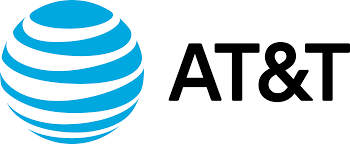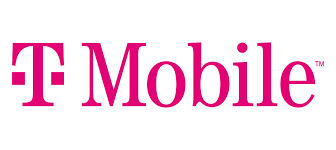Newcomer’s Guide to Moving to the U.S. and Building Your Credit
If you are about to immigrate to the U.S., this may be the biggest, bravest journey of your life.
Long before you pack your bags and say farewell to beloved family and friends, you may face an intimidating list of tasks to complete either before or after you arrive in your new home. To build your new life, you may need to find a job, look for a place to live, get to know your community, determine how you will get around, obtain important documents, set up new accounts and meet new people.
As far as your credit history goes, you will need to establish first-time credit from scratch. As your U.S. credit record grows, it will be easier to get approved for loans, credit cards and low interest rates that will open up new opportunities. And your strengthening credit profile can help you get a good job, a car or even a new home.
To help you get ready for your move to America, here is your newcomer’s guide to settling into the United States and building your credit history.
Obtain Important Documents
Open a Bank Account
Understand How Credit Works in the U.S.
Find a Home to Rent
Sign up for Phone and Internet Services
Take Advantage of Newcomer Services for Immigrants
Assess Your Credentials and Apply for Educational Programs
Get a Job
Buy or Lease a Car
Apply for Government Benefits
Obtain Important Documents
Visa and Permanent Resident Card (Green Card)
In most cases, to seek entry into the U.S., you will need to obtain a U.S. visa. Depending on your reason for coming to the U.S. (e.g., work, study, family, business), you will need either a non-immigrant visa (for a temporary stay) or an immigrant visa (for permanent residence).
You can read here about visas and find out which type is appropriate for you.
After you have your visa, you may become eligible to apply for a Green Card. Also known as a Permanent Resident Card, this document allows you to live and work permanently in the United States. You can find out here whether you might qualify for a Green Card and learn how to apply.
Social Security Number (SSN)
To work in the U.S., collect Social Security benefits and receive other government services, you will need an SSN.
If you apply for an immigrant visa, you can request an SSN as part of your application. You will receive your Social Security card and SSN at your U.S. mailing address. You can learn here about SSNs.
In some cases, you may not be eligible for an SSN without a job offer. If you cannot get an SSN and if you are coming to the U.S. as a student, ask your academic institution whether you should apply to the Internal Revenue Service for an Individual Taxpayer Identification Number (ITIN) instead.
Health Insurance
In the U.S., people usually pay for their own medical care, either directly or through insurance. According to U.S. census statistics, 55% of Americans have private health
insurance provided by their employer.
If you will have a job as soon as you arrive in the U.S., find out from your employer whether you will be able to get health care insurance from your workplace. If not, you should buy your own insurance as quickly as you can because medical care can be expensive.
About 31 million Americans are enrolled in health care coverage through the U.S. Affordable Care Act. To qualify for such coverage as a permanent resident, you must live in the U.S., you must be out of prison, and your income cannot exceed a certain level. You can learn here about the Affordable Care Act and find a good health insurance plan.
Your new city or town may have a clinic or community health center that provides free or lowcost services. To find a doctor near your new home, you can search here for an affordable health care facility. Also, Walgreens and CVS pharmacies provide inexpensive health services through the clinics they have in their stores.
Various government programs (e.g., Medicare, Medicaid, the Children’s Health Insurance Program (CHIP) and state programs such as Florida KidCare) also pay for health care for people who are eligible. You can learn here about government health care programs.
Driver’s License or Other Identification
To drive in the U.S., you will need a driver’s license issued by the state or territory in which you will live. If you have a license in your home country, you may be able to trade it for a license in your new state. You can check here with your state or territory about getting your driver’s license.
You can use your license as official photo identification (ID). However, if you do not drive, you can check with your state or territory about getting a state ID card instead.
In most states, it is illegal not to have car insurance. You can search here for affordable car insurance rates.
To keep your money safe, and to make purchases and pay bills more easily, you should open a bank account promptly after arriving in the U.S. Having a bank account also will help you save money for your future and will enable people or companies—including your employer— to deposit money directly into your account. At your bank, you can also ask about renting a safety deposit box to protect any valuables you may have.
The U.S.’s top 4 banks are JPMorgan Chase, Bank of America, Wells Fargo and Citibank. There are many additional banks. Shop around for the bank that best suits your needs.
For example, look at fees, compare interest rates and see whether you will be required to maintain a minimum balance. Be sure you are comfortable with the ways you can access your account (e.g., online, by telephone, in person). If English is not your first language, you might choose a bank that can serve you in a language you know better.
Instead of getting a bank account, you might consider becoming a member of a credit union. A credit union is a not-for-profit organization that exists to serve its members. You can learn here about credit unions and the financial services they provide.
If you can get an unsecured credit card without having U.S. credit history, do so and start using your card right away. Using a credit card is an important way to build your credit record and increase your credit score.
Consider applying for a Petal credit card. Petal evaluates your application based on your income, savings and spending history and suits people who are new to U.S. credit. You may also want to look at American Express’s offerings for newcomers, especially if you have built a healthy credit score in your home country. You can search here for more credit card options.
If you do not meet the qualifications for an unsecured credit card, follow our tips to build your credit without having a credit card.
Understand How Credit Works in the U.S.
“What is credit?” you may ask, and “Why is credit important?”
When you borrow money (e.g., a bank loan) or receive products or services (e.g., phone service) and repay the lender later, you are receiving credit. For example, credit can include a credit card account, a mortgage, a personal loan and more.
The main credit bureaus in the U.S. (Equifax, TransUnion and Experian) record your credit history on your credit report. Your credit report shows details about how you have managed debt and whether you have paid your bills on time. As part of your report, the bureaus assign a credit score between 300 and 850. (You can request a free copy of your credit report here.)
The higher your credit score, the more “creditworthy” you will appear to financial institutions, lenders, retailers and potential landlords. This means they will be more likely to trust you to pay back loans on time, as well as to pay your bills or rent.
If lenders trust you, they are more likely to approve your applications for loans, including those with lower interest rates. If you are seen as creditworthy, you will have an easier time getting credit cards, purchasing or renting a home, buying a car, qualifying for good cellphone deals and, in some cases, getting hired.
What goes into calculating your credit score? The biggest five credit score factors are your payment history, the amount you owe compared with your available limits, your length of credit history, your mix of credit accounts, and recent inquiries for new credit. The good news is that you have control over these factors so you can work to elevate your score.
Any credit you established in your home country does not come with you to the U.S. (although any large debt you carry could affect your immigration application). You will have to start building credit from the ground up.
How can you develop credit? You can use a credit card or follow our tips to build credit without a credit card. For example, with the Landlord Credit Bureau, you can get your credit score up by paying your rent on time every month. Learn here how to set this up.
Find a Home to Rent
In some U.S. cities, finding a rental unit is very competitive. A place you see advertised for rent may be taken fast. When you hear of an apartment you might like to rent, call to arrange a visit as early as you can.
To find properties for rent, check the classified ad sections of newspapers; look at public notice boards in grocery stores, community centers or libraries; watch for signs in your neighborhood saying “for rent” or “for lease”; or search the Internet, including listings websites such as Apartments.com, Zillow or Realtor.com.
When you find a place that interests you, you may be asked to complete an application form. The landlord may ask you for references (e.g., a past landlord, a friend, your employer). The
landlord may also ask who your employer is, inquire how much income you make and ask to check your credit history. If you are worried about not yet having a U.S. credit record and if you have not yet found a job, you can find other ways to show the landlord you are creditworthy.
Ready to build credit by paying rent?
If you take good care of your rental unit and always pay your rent in full and on-time, we have good news for you. When your landlord reports your on-time rent payments to Equifax through the Landlord Credit Bureau (LCB), your credit score can increase. With LCB, you can also build a positive, verified tenant record, which can help you get the place you want the next time you move.
Popular brands for mobile phone service are AT&T, Verizon, T-Mobile and Boost Mobile. You might also consider Lycamobile, Metro by T-Mobile, Mint Mobile and other low-cost carriers.
For Internet service, you might look at Xfinity, Spectrum and AT&T.
You can learn here how phone and Internet service works in the U.S.
If you choose a postpaid plan (where you pay for your services after using them), the phone company may not approve your application until they have checked your credit record. Because you will not yet have a U.S. credit history, you may need to buy a prepaid plan, which does not require a credit check.
Until you get your own Internet set up, you can visit a nearby public library. You can search here for libraries near your new home. At libraries, you often can use a computer and access the Internet for no charge. You can also try a nearby Starbucks or another coffee shop that has free Wi-Fi.
What are some of the greatest difficulties that U.S. newcomers may face? Finding a job, searching for a place to live and learning a new language are a few.
In your home country, was your main language English? If not and if you need to improve your skills, you might consider taking English-language classes. You can find free or low-cost English classes at community centers, community colleges, public libraries, places of worship or public schools. You can also search for an English class here or learn English online here.
Drop into your local library. Programs at public libraries can teach you how to develop your computer skills, manage your personal finances, find a job and more.
Many community organizations provide other kinds of free or low-cost assistance to immigrants. For example, they can help you learn about your community, find out what services might be available to you, and identify the best ways to look for a job. To find these organizations, search the Internet, look in a phone book, ask the staff in your public library or contact your local government social service agency.
You can find detailed information here about settling in the U.S. and download a helpful PDF guide.
In your home country, you may have worked hard to get your degree, certificate, license or other academic credentials. Before coming to the U.S., you may want World Education Services to assess your credentials. Do your qualifications meet U.S. standards? Do you need more training or U.S. work experience to find employment in your field? The assessment can help you find out.
Both newcomers and U.S. citizens are welcome to attend U.S. universities, colleges and other post-secondary schools and training programs. You can get information here about how to study in the U.S. You can see here how universities and colleges are ranked, as well as get advice on preparing for school.
Some schools offer convenient online programs. For example, you might look at Southern New Hampshire University or the University of Arizona Global Campus.
You can learn here about any student financial assistance you may be eligible for. This may include grants, loans, scholarships or other types of aid. You can get more information here about paying for college. You can look here for information about national scholarships offered to immigrants, as well as any state scholarships that may apply to you.
You can learn here how to search and apply for jobs in the U.S. You can find additional information here on job-hunting, U.S. employment standards that protect people from illegal discrimination, and starting your own business.
To find a job, you can use the Internet to research companies where you want to work, as well as browse job-search, professional-networking and community websites such as LinkedIn, Monster, Indeed, ZipRecruiter and Nextdoor.
You can also ask friends in your new community for ideas, look for “help wanted” signs in your neighborhood and check the classified ad sections of newspapers.
You can use this website to help you explore careers, find training programs or locate an American Job Center near your new home.
If you drive, you might decide to get a car. If you need a vehicle for only a short while, you can rent one from a car rental agency. Otherwise, you can buy or lease a vehicle from a car dealer.
Search the Internet to learn about car dealers or car rental agencies near your new home. You can learn more here about buying, leasing and renting cars.
You might start your car shopping here, as well as get financing tips and check car insurance rates. You can search here if you want to purchase a used vehicle.
If you need to borrow money to purchase a vehicle, you can search for a car loan here. You can also look here for auto loans or car insurance. However, with no U.S. credit history, you may find it difficult to qualify for a car loan. You can get tips here on car loan alternatives to consider.
The U.S. federal government provides many benefits and services, some of which you may be qualified to receive. Use the Benefit Finder questionnaire to see whether you are eligible for assistance in paying for food, health insurance, housing, utilities or other necessities.
You can learn here about additional benefits for permanent residents and read here about Social Security benefits.
As a U.S. newcomer and as a new U.S. tenant, are you ready to establish credit, build a positive tenant record, skip the line and get the rental unit or home you deserve? Sign up today to report your on-time rent payments.
Disclaimer
The information provided in this post is not intended to be construed as legal advice, nor should it be considered a substitute for obtaining individual legal counsel or consulting your local, state, federal or provincial tenancy laws.
In October 2021, the LCB organization re-branded some of the services it offers under FrontLobby. Until this point, the LCB organization has consisted of two companies handling different services under the umbrella trademark of Landlord Credit Bureau. The introduction of FrontLobby enables each company to maximize its focus and impact. Read More
Rent Reporting Benefits Landlords and Tenants
Landlords, Property Managers and Tenants can report rent payments and rental history data to Landlord Credit Bureau through FrontLobby.

















